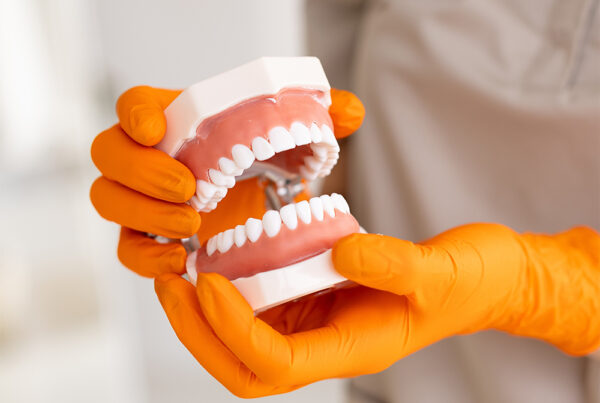Teeth takes an important place in daily life. You can eat, talk, sing and many more things with them. Yet, tooth decaying, accidents and aging may cause to lose these valuable pieces of our body. This blog post will mention about how you can replace missing teeth with naturally looking and highly functioning wonder of dentistry, with the mentioning of dental implant cost.
Dental Implant Costs By Country
Even though costs of dental implant operations vary within a wide range, the list given on this post is helpful to decide which country is the most economically advantageous.
Turkey
Dental implants in Turkey are an affordable and attractive option for those looking to replace missing teeth. Prices for dental implants vary depending on the type of implant and the complexity of the procedure, but typically range from €200 to €1,500 per implant. The cost also includes post-operative care, such as follow-up visits and x-rays. In addition to the cost of the implant itself, patients may need to pay for any additional treatments or procedures that are required before or after their implant is placed. This could include bone grafts, sinus lifts, or gum surgery. Overall, dental implants in Turkey offer a great value for money when compared to other countries in Europe. With experienced dentists and high quality materials used during treatment, patients can rest assured that they will receive excellent care at an affordable price.
The United States
In the United States, the average cost of a single dental implant is between $1,500 and $6,000. This price range includes both the implant itself and any necessary procedures such as bone grafting or sinus lifts. Additional fees may be charged for anesthesia and other related services. The total cost of treatment will depend on factors such as your location, the complexity of your case, and whether you have insurance coverage.
Canada
In Canada, dental implants typically cost between $2,000 and $5,000 per tooth. This price range includes both the implant itself and any necessary procedures such as bone grafting or sinus lifts. Additional fees may be charged for anesthesia and other related services. The total cost of treatment will depend on factors such as your location, the complexity of your case, and whether you have insurance coverage.
Europe
In Europe, dental implants typically cost between €1,500 and €4,500 per tooth depending on where you live in Europe. This price range includes both the implant itself and any necessary procedures such as bone grafting or sinus lifts. Additional fees may be charged for anesthesia and other related services. The total cost of treatment will depend on factors such as your location in Europe, the complexity of your case, and whether you have insurance coverage.

Australia
In Australia, dental implants typically cost between AU$2,500 to AU$7000 per tooth depending on where you live in Australia . This price range includes both the implant itself and any necessary procedures such as bone grafting or sinus lifts. Additional fees may be charged for anesthesia and other related services. The total cost of treatment will depend on factors such as your location in Australia ,the complexity of your case ,and whether you have insurance coverage .
Asia
In Asia, dental implants typically cost between US$1,200 to US$3,000 per tooth depending on where you live in Asia. This price range includes both the implant itself and any necessary procedures such as bone grafting or sinus lifts. Additional fees may be charged for anesthesia and other related services. The total cost of treatment will depend on factors such as your location in Asia, the complexity of your case, and whether you have insurance coverage.
South America
In South America ,dental implants typically cost between US$800 to US$2 ,400 per tooth depending on where you live in South America. This price range includes both the implant itself and any necessary procedures such as bone grafting or sinus lifts .Additional fees may be charged for anesthesia and other related services. The total cost of treatment will depend on factors such as your location in South America ,the complexity of your case, and whether you have insurance coverage.
Africa
In Africa ,dental implants typically cost between US$700 to US$2 ,100 per tooth depending on where you live in Africa .This price range includes both the implant itself and any necessary procedures such as bone grafting or sinus lifts .Additional fees may be charged for anesthesia and other related services .The total cost of treatment will depend on factors such as your location in Africa ,the complexity of your case ,and whether you have insurance coverage .

Factors That Affect Cost On Dental Implants
Implants offer a permanent solution to tooth loss and can help improve your smile and oral health. However, the cost of dental implants can be a major factor in deciding whether or not to get them. In this blog post, we’ll discuss the factors that affect the cost of dental implants and how you can save money on them.
Type Of Implant
The first factor that affects the cost of dental implants is the type of implant being used. There are several different types of implants available, including traditional titanium implants, mini-implants, and zirconia implants. Each type has its own benefits and drawbacks, so it’s important to research each one before making a decision. The material used for the implant also affects the price; titanium is typically more expensive than other materials such as zirconia or ceramic.
Number Of Teeth Considered To Undergo An Operation
The second factor that affects the cost of dental implants is the number of teeth being replaced. Generally speaking, more teeth will require more work and therefore cost more money. Additionally, if you need multiple procedures such as bone grafting or sinus lifts prior to getting your implant, this will also add to the overall cost.
Location
The third factor that affects the cost of dental implants is where you get them done. If you go to a private practice dentist or an oral surgeon who specializes in implant dentistry, they may charge higher fees than a general dentist who offers basic services like fillings and cleanings. Also keep in mind that some insurance plans may cover part or all of your implant procedure costs depending on your plan’s coverage limits and what type of procedure you’re having done.
Side Costs
Finally, there are other factors that can affect the overall cost of dental implants such as anesthesia fees, lab fees for customizing crowns or bridges to fit your mouth perfectly, x-rays and scans needed for pre-implant planning purposes, follow-up visits after surgery for healing checkups and adjustments if necessary, medications prescribed by your doctor during recovery time from surgery (if applicable), etc. All these additional costs should be taken into consideration when budgeting for your dental implant procedure.

Additional Costs Of Dental Implant
Implants only do they look and feel like natural teeth, but they also last a lifetime with proper care. But before you decide to get dental implants, it’s important to understand all the costs associated with them.
The cost of dental implants can vary depending on several factors, including the type of implant used, the number of implants needed, and any additional procedures required for your specific case. In general, however, you can expect to pay anywhere from $1,500 to $6,000 per implant. That price range includes both the surgical procedure itself as well as any necessary follow-up visits or treatments.
In addition to the cost of the implant itself, there are several other expenses that may be involved in getting dental implants. These include:
-
X-rays And Imaging Tests
To determine if you’re a good candidate for dental implants and to plan out your treatment plan accordingly, you may need X-rays or other imaging tests such as CT scans or 3D scans. These tests typically cost between $100 and $400 each.
-
Anesthesia
Depending on your case and your preferences, you may need local anesthesia during your implant surgery. This usually costs between $200 and $400 per session.
-
Bone Grafting
If there isn’t enough healthy bone in your jaw for an implant to be placed securely, then you may need a bone grafting procedure first. This is usually done at an additional cost ranging from $800 to $2,000 per grafting site.
-
Implant Abutment
The abutment is a connector piece that attaches the implant post to the crown or bridge that will eventually be placed over it. The cost of this part varies depending on its size and material but typically ranges from around $300 to $500 per abutment.
-
Dental Crowns Or Bridges
After the implant has been placed successfully in your jawbone, you will need a crown or bridge made specifically for it in order for it to look like a natural tooth again. The cost of these prosthetics depends on their size and material but generally range from around $500 up to several thousand dollars each.
Dental Implant Insurance
When it comes to dental implants, many people are concerned about the cost. Fortunately, insurance coverage for dental implants can help make this procedure more affordable. In this part blog post, we’ll discuss how much insurance covers dental implant costs and other important information you should know.
How Much Does Insurance Cover Dental Implant Costs?
The amount of coverage your insurance provides for dental implants will depend on your specific plan and policy. Generally speaking, most insurance plans will cover some portion of the cost of the implant itself, but not all plans will cover additional costs such as the abutment or crown. Additionally, some plans may have an annual maximum benefit limit that could affect how much they will pay for your procedure.
It’s important to contact your insurance provider directly to determine what type of coverage you have for dental implants and what out-of-pocket expenses you may be responsible for paying. You should also ask if there are any preauthorization requirements or restrictions on which dentist you can use in order to receive coverage.
In addition to insurance coverage, there are several other factors that can affect how much you pay for dental implants:

Tips For Saving Money On Dental Implants
If you’re looking for ways to save money on dental implants without sacrificing quality care, here are some tips that might help:
• Shop Around: Comparing prices between different dentists is one way to find the best deal possible without compromising quality care.
• Ask About Discounts: Some dentists offer discounts for cash payments or reduced rates for certain procedures like multiple implant placements at once so it pays off to ask around and see what kind of deals are available in your area.
• Look Into Financing Options: If paying upfront isn’t an option, there are several financing companies that specialize in providing loans specifically designed for medical procedures like dental implants so be sure to look into these options as well if needed.
• Consider Alternative Treatments: In some cases, alternative treatments such as bridges or partial dentures may be just as effective as implants but less expensive so it pays off to explore all available options before making a decision about which treatment is right for you personally and financially speaking too!
Are Dental Implants Worth It?
You may be wondering if dental implants are worth the cost and effort. In this section, we’ll explore the pros and cons of dental implants so you can make an informed decision about whether or not they are right for you.

Benefits of Dental Implants
There are many benefits to getting dental implants, including:
• Improved appearance: With dental implants, you won’t have to worry about gaps in your smile or having a removable denture that could slip out of place. Instead, your new teeth will look just like natural teeth and will blend in with your existing teeth.
• Improved oral health: Unlike bridges or dentures, which rely on neighboring teeth for support, dental implants are self-supporting and don’t put any additional strain on other teeth. This helps preserve the health of your remaining natural teeth.
• Durability: Dental implants are designed to last for many years with proper care and maintenance. In fact, some studies suggest that they can last up to 25 years or more!
• Improved speech: Missing teeth can cause speech problems such as slurring or mumbling words due to difficulty forming certain sounds correctly. With dental implants, these issues can be resolved since they function just like natural teeth would.
• Improved comfort: Unlike dentures which can cause discomfort due to rubbing against gums or slipping out of place, dental implants fit securely in your mouth and feel just like natural teeth would.
Conclusion
Overall, while there are some risks associated with getting dental implants such as cost and surgery involved in placing them, there are also many benefits that make them worth considering if you’re looking for a permanent solution for replacing missing teeth. If you take into account all the pros and cons discussed above then you should be able to make an informed decision about whether or not they are right for you!
Frequently Asked Questions
Can I get dental implant treatment on the NHS?
To be eligible for dental implant treatment on the NHS, you must meet certain criteria. Generally, this means that you must have a medical condition or disability that affects your ability to eat, speak or smile. If your dentist believes that you are suitable for dental implant treatment on the NHS, they will refer you to an NHS hospital for assessment and further discussion about the procedure. The cost of dental implants on the NHS may vary depending on where you live and your individual circumstances. It is important to note that not all dentists offer dental implant treatments on the NHS so it is worth researching local services before making an appointment.
What is the cost of a dental implant consultation?
The cost of a dental implant consultation can vary depending on the type of implant, the complexity of the procedure, and the location of the practice. Generally, consultations range from $50 to $250. It is important to find a reputable dentist who has experience with dental implants and who can provide an accurate assessment of your needs. During your consultation, your dentist will discuss all aspects of the procedure, including any potential risks or complications that may arise. They will also review your medical history and take X-rays to determine if you are a good candidate for dental implants. With careful consideration and planning, you can ensure that you receive quality care and have a successful outcome with your dental implant procedure.
Can I get dental implants free or subsidized?
Dental implants can be expensive, but there are ways to get them free or subsidized. Depending on your location and financial situation, you may qualify for free or reduced-cost dental implants through government programs, non-profit organizations, or charitable foundations. You can also check with your local dentist to see if they offer any special discounts or payment plans. Additionally, some employers offer dental insurance plans that cover the cost of implants. Finally, you can search online for grants and scholarships that may help cover the cost of dental implants. With a little research and planning, you may be able to find a way to get the dental implants you need without breaking the bank.
Is there a cheap dental implant technic?
Yes, there is a cheap dental implant technique available. It is called mini dental implants and it is an affordable way to replace missing teeth. Mini dental implants are smaller than traditional implants and can be placed in a single visit. They provide a secure and stable foundation for crowns, bridges, or dentures, allowing you to eat and speak with confidence. Mini dental implants are also more cost-effective than traditional implants and can be completed quickly with minimal discomfort.
Are there cheaper alternatives to dental implants?
Yes, there are cheaper alternatives to dental implants. One option is a dental bridge, which uses adjacent teeth as anchors for a false tooth. Another option is a denture, which can be either removable or fixed. A third option is a mini implant, which is smaller than a traditional implant and requires less surgery. All of these options provide an effective way to replace missing teeth at a lower cost than dental implants.







